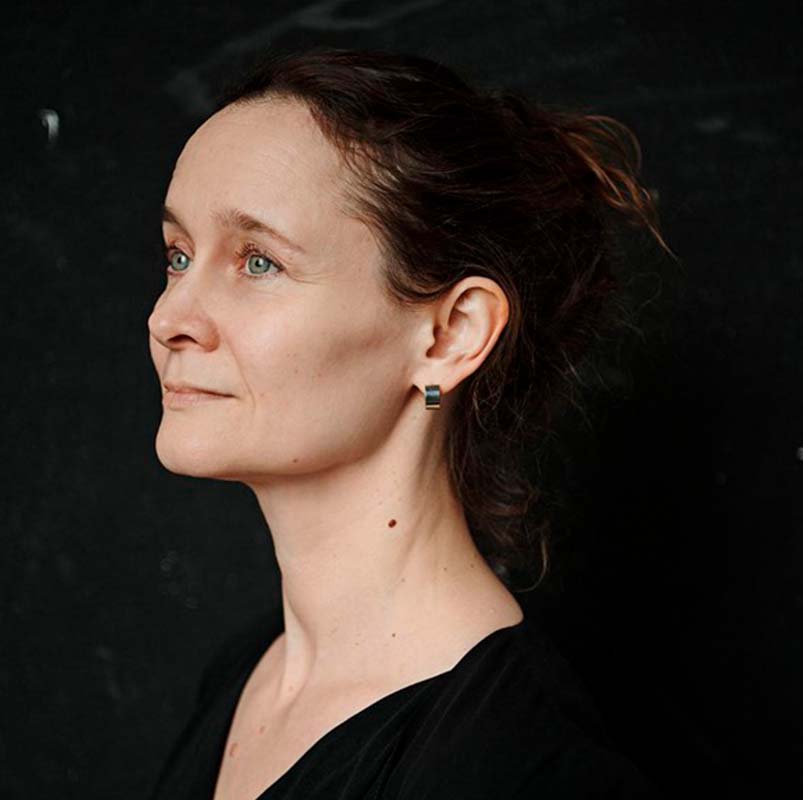
Esa Saarinen:
“Philosophy as a Transformative Force”
Mr. Esa Saarinen (b. 1953) is a philosopher, writer, company coach, media figure, speaker, public intellectual and Professor emeritus of Aalto University. After defending his Ph.D on philosophical logic in 1977 at the age of 24, Saarinen became known as the “Punk Doctor” known for his colourful, non-cynical contributions through writings and striking media appearances. Gaining reputation for his lectures first at University of Helsinki and then in companies and for the general public, Saarinen became a household name in the country and the most recognised academically credited public speaker in Finland attracting astonishingly wide interest from people of all walks of life. In Youtube the philosopher's “Philosophy and Systems Thinking” course (in Finnish) has been viewed more than 2 million times and when he retired from his professorship, more than 100 000 people tuned in to see the farewell lecture. Saarinen sees it as his calling to promote applied philosophy as a platform for better life through better thinking of one’s thinking, and as connected to emotions and everyday life. Saarinen lives in the centre of Helsinki with his “Special Lady" for almost 40 years, Pipsa Pallasvesa, whom the philosopher often refers to as “the Queen”. The couple has two adult sons.

Ilkka Niiniluoto: "Defending Truth in the Post-Truth Era"
Ilkka Niiniluoto (born 1946) is professor emeritus at the University of Helsinki, Finland. His academic career includes: Master of Science (Applied Mathematics) (1968), Doctor of Philosophy (1974), Associate Professor of Mathematics (Logic and Foundations) (1973-1977), Professor of Theoretical Philosophy (1977-2014), Vice-Rector for Research (1998-2003), Rector (2003-2008), and Chancellor (2008-2013). In 2017 he received the title of Academician of Science. Niiniluoto was the President of the Philosophical Society of Finland in 1975-2015, and the Editor of Acta Philosophica Fennica in 1980-2020. He is an honorary member of this Society and FETO. Niiniluoto has worked on philosophical logic, philosophy of science, epistemology, philosophy of culture, philosophy of technology, and history of philosophy. His defense of scientific realism and scientific progress employs his original explication of the notion of truthlikeness or verisimilitude. Niiniluoto’s main works in philosophy of science include Theoretical Concepts and Hypothetico-Inductive Inference (with Raimo Tuomela, 1973), Is Science Progressive? (1984), Truthlikeness (1987), Critical Scientific Realism (1999), Truth-Seeking by Abduction (2018), and Beauty, Truth, and Justice (2022). With his collections of philosophical essays and textbooks in Finnish, Niiniluoto is well-known for his public defense of the Enlightenment values.

Elisa Aaltola: "The need for multispecies democracy"
Elisa Aaltola works as an associate professor in philosophy at the University of Turku, Finland. Her research interests focus on animal philosophy and moral psychology, and she has published widely on both topics. Aaltola's books include Animal Suffering: Philosophy and Culture (2012), Animal Ethics and Philosophy: Questioning the Orthodoxy (co-edited with John Hadley, 2014) and Varieties of Empathy: Moral Psychology and Animal Ethics (2018), together with a number of Finnish books (her most recent collection of essays, which centres on language and animal philosophy, appeared last October).

Säde Hormio: "Climate change and democracy"
Säde Hormio is an Academy Research Fellow in Practical Philosophy at the University of Helsinki. She is also affiliated with the Institute for Futures Studies in Stockholm and a recipient of the European Commission’s Marie Skłodowska-Curie Global Fellowship. Hormio’s research focuses on shared and collective responsibility. This includes questions such as what we mean by the responsibility of collective agents and what is the role of individuals in changing institutional practises. She is also interested in questions to do with social epistemology, of knowledge and ignorance, and the mechanisms that can cause ignorance, either deliberately or by accident. Hormio has published articles in journals such as Wiley Interdisciplinary Reviews: Climate Change and Episteme. Her first book, Taking responsibility for climate change, focuses on how climate change is a collective problem that needs collective solutions, and how individuals can help to bring these about. She has also co-edited two volumes, one on climate ethics and economics, and the other on collective responsibility.

Inkeri Koskinen: "Objectivity in the Service of Democracy?"
Inkeri Koskinen is a philosopher of science working as an Academy of Finland Research Fellow in Practical Philosophy at the University of Helsinki. She is a member of the Centre for Philosophy of Social Science (TINT). Her research interests include objectivity, social epistemology, the democratisation of scientific knowledge production, social and cognitive diversity in science, transdisciplinarity, activist research, philosophy of the humanities, and demarcation.